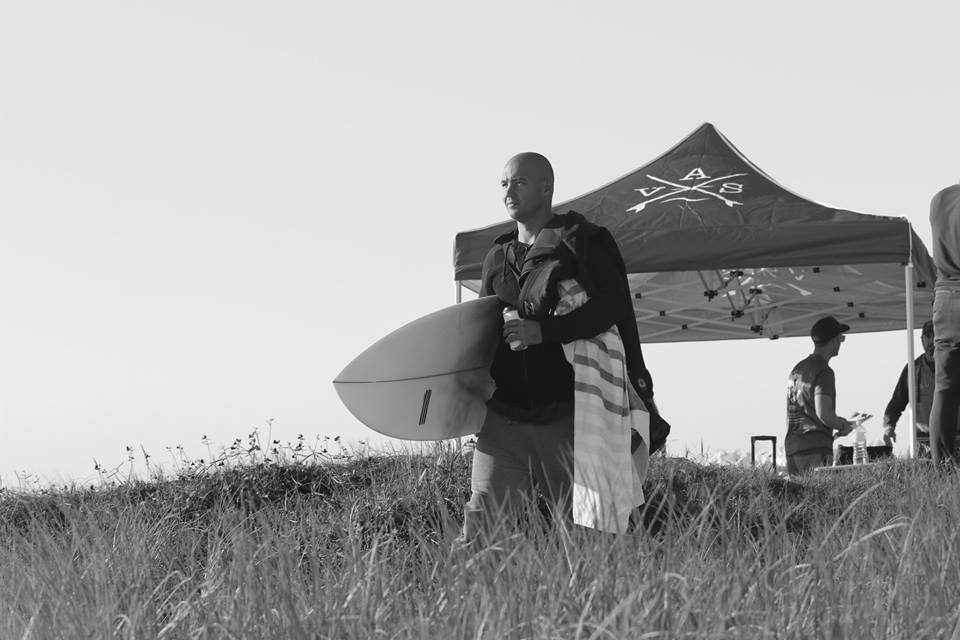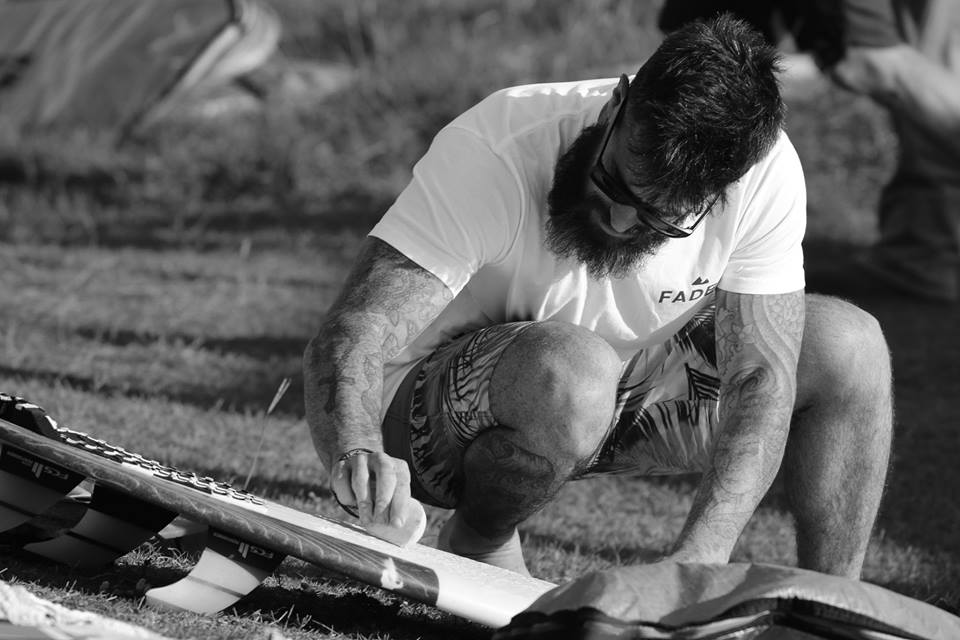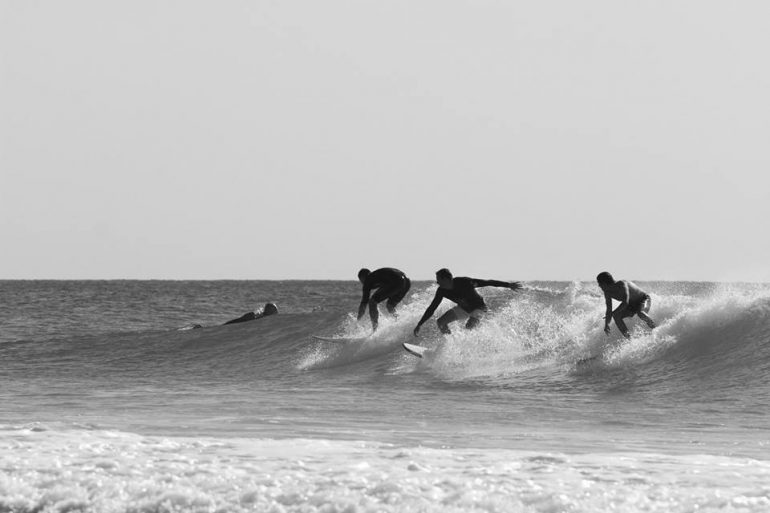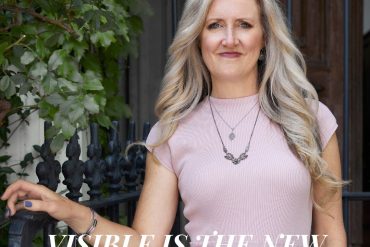Get it’s Kathleen Loxton investigates how our very own Gold Coasters are fighting for the mental health cause
It’s the slam of a door or the sound of a car backfiring that sets off a trigger… causing flashbacks to distant battlefields or harrowing situations past. At least, that’s what post-traumatic stress disorder (PTSD) is portrayed as in the many movies and books we as the general population regularly consume. However, PTSD takes many forms and, according to Phoenix Australia (the Centre for Posttraumatic Mental Health), five to 10 per cent of people will experience PTSD at some points in their lives. It’s not a sign of weakness or relegated to certain groups or experiences. It can touch the lives of any of us and is a vital discussion we as a society should be having about mental health.With PTSD Awareness Day happening worldwide on 27 June, we take a moment to shed some light on this important cause.
What is PTSD? Some definitions
- “Post-traumatic stress disorder (PTSD)is a treatable anxiety disorder affecting around one million Australians each year. It happens when fear, anxiety and memories of a traumatic event don’t go away. The feelings last for a long time and interfere with how people cope with everyday life. PTSD can be caused by traumatic experiences that involve death, serious injury or sexual violence (actual or threatened). This might include physical or sexual assault, living in a war zone, torture, and natural disasters.” – healthdirect.gov.au.
- “Post-traumatic stress disorder (PTSD) is a group of stress reactions that can develop after we witness a traumatic event, such as death, serious injury or sexual violence to ourselves or to others. PTSD can happen after we’ve been through one traumatic event, or after repeated exposure to trauma. Sometimes, PTSD can develop after hearing details about devastating and traumatic events many times, like the experience of some emergency workers.” – blackdoginstitute.org.au.
How have we seen it portrayed and what are some of the misconceptions?
- The New York Times published an article, “Debunking Stereotypes Around Veterans and PTSD”, which discussed five main misconceptions about veterans suffering from PTSD and debunked the following myths: if you have PTSD it must seem apparent in your appearance, otherwise it is not severe; most are dealing with PTSD relatively well; those that suffer cannot life a fulfilling life or serve their country; those that suffer from PTSD are not human; veterans are “damaged goods”; those veterans that suffer from PTSD are dangerous.
-
Roland Atkinson stated, in the scientific journal Clinical Psychiatry News,“When I think of other films that excel in depicting stress disorders and postwar adjustment problems, seven stand out: ‘All Quiet on the Western Front‘ and ‘Mrs. Dalloway‘ (the subplot involving the ‘shell-shocked’ soldier, Septimus Smith) (both from WWI); ‘The Best Years of Our Lives‘ and ‘Thin Red Lines‘ (WWII); ‘Coming Home‘ and ‘The Deer Hunter‘ (Vietnam); and the recent Danish film, ‘Brothers‘ (Brodre), about a NATO peacekeeper forced by captors to kill a comrade (post-Sept. 11 Afghan war).
- New Vista Behavioural Health recommended the films The Perks of Being a Wallflower, Brothers, and Monster. Though, it was also noted, “For those who experience PTSD, some movies may be triggering. However, some PTSD movies may be enlightening for some who are unfamiliar with PTSD and want to gain a better understanding of what some may go through. Not all movies portray PTSD accurately, and each person’s experience is different.”
Examples of some recent headlines concerning PTSD
- In Get it’s March issue, we reported on Peta Stapleton’s work, through a study at Bond University, that was investigating the use of Emotional Freedom Technique (EFT or ‘tapping’). In the UK, EFT has met the inclusion criteria for PTSD treatment.
- “One in five police officers in the UK suffer from PTSD, study finds” – The Guardian.
How Gold Coasters are doing their part
The Association of Veteran Surfers (AVS) was formed in January 2016, by Matthew Hoare and Kieran Scotchford. This wonderful association stemmed from Matt and Kieran’s experience serving together in the 8/9th Battalion, Royal Australian Regiment, and from the shared difficulties they faced as veterans transitioning into civilian life. Its goal is to foster a healthy and active suicide free veteran community, through surfing and mateship.
A description on the AVS Facebook page reads:
“Most veterans struggle to find a career that matches the defence force, many isolate themselves and never find a way to get back on track. Surfing can offer all the same challenges in a healthy and fun way to relieve these stresses. The physical and mental challenges are very similar, the ocean can be a dangerous place if not respected, while you’re out against the odds from big waves to even dangerous marine life, you are put back into an environment where you’re once again not only looking out for yourself but the mates to your left and right. Your body goes into overdrive, you catch a wave and want to catch a bigger wave, you become competitive again, you set goals for new tricks to be learnt and at the same time you realise you’re having the time of your life and all those stresses you had when you arrived are somewhat a distant memory. Surfing has reminded you that you can still go out and achieve something when the odds are stacked against you, it’s what the military trained you to be. At the end of the session for the first time you feel tired but in a good way, you sleep a full eight hours without a pill, you feel excitement and happiness, you feel something for the first time in a long time.You realised you went out in a group activity without the need of alcohol, the anxiety and pressure of crowds quickly disappeared when you first hit the water. This is the feeling and effects of ‘Ocean Therapy’, it’s something Matt and Kieran experienced and needed to share it with their mates and the wider veteran community.”

This is what AVS means to Matt and Kieran, and the community they’ve created. Matt explained, “… once you discharge there is a lack of purpose and identity, and we realised that surfing was a way for us to stay connected with each other and help relieve stress. That was when we realised, we could use it to help others in a similar situation.”
Kieran found strength from a similar moment, recalling, “We were both discharged from the defence force at the time, we were away in Papua New Guinea working security. During our time back home, we started catching up with our mates (that Matt and I had served with) and surfing, and Matt and I realised that this is a great thing; there’s no alcohol involved, so we can come down and feel no pressure. So, we decided to make a social group on Facebook, called it the Association of Veteran Surfers and initially, when we had our first surf club, it was basically just Matt and I that came to it. Then it just grew, it caught so much traction and we decided to make it official, we decided to commit to it and here we are. Three years later, we’ve got almost 100 members.”
Understand PTSD spreads far and wide. That stigma is still attached that you are weak if you have it and your mates don’t, but we are all struggling one way or another.
“I think the highlight for me is seeing a community of likeminded veterans and their families coming together, in that one common goal, which is to help each other. If anyone has any issues that community comes together and really helps… That’s probably the biggest achievement that I see, and I get a lot out of it. Going to our surf days and seeing everyone coming together, including families, their kids, all enjoying a relaxing time together. It gives me shivers down my spine with I see that,” said Kieran.
Matt added, “The highlight so fat for me is the community of veterans and their families we have been able to establish on the coast and the connection with the surfing community both here and interstate. They have been very accepting of us and made the process of building AVS a lot easier. Especially Paul and Jenny from Kirra Surfriders.”

Of the struggles veterans in our communities still face, Kieran said, “I think employers that are looking to employ veterans need to educate themselves a little bit on what PTSD is, and depression, and how to utilise a veteran’s skills and abilities, in a way that they can prove themselves. They have so many skills and strengths that you don’t get anywhere else, besides the military, but they don’t really understand how to utilise them.” Kieran explained from a managerial perspective employers need to do their research, but veterans also need to employ their skills in a civilian sense. Kieran continued, “I’ve personally sat in an interview and been told that generally they don’t hire veterans, because they’re mentally and physically screwed up, and that’s sort of the consensus, and stigma, that you feel. Obviously, that’s not all organisations but it does sit in the back of the veteran’s mind and it does throw them off a little bit. It makes them not accept what they might be suffering. It can make them think they have less chance of securing the job because of these restrictions, but in all seriousness veterans by nature
are hardworking, have a strong work ethic and those sorts of things we can deal with without impending on our job. That’s what we want people to understand.”
Matt concluded, “You may not agree with the conflicts we have been in or the reasons for them, but the veteran community have signed up to serve our community and possibly die in the process. Yes, we made those decisions ourselves, but it is one we are extremely proud of and one of the complications is PTSD, it can affect anybody at any time, please just show support for our current and ex-serving military personnel and understand PTSD spreads far and wide. That stigma is still attached that you are weak if you have it and your mates don’t, but we are all struggling one way or another.”
So, Get it girls, show your support for those suffering with PTSD, whether it’s for yourself, your loved ones or fellow Australians. We all need to support one another and break the cycle of stigma.





